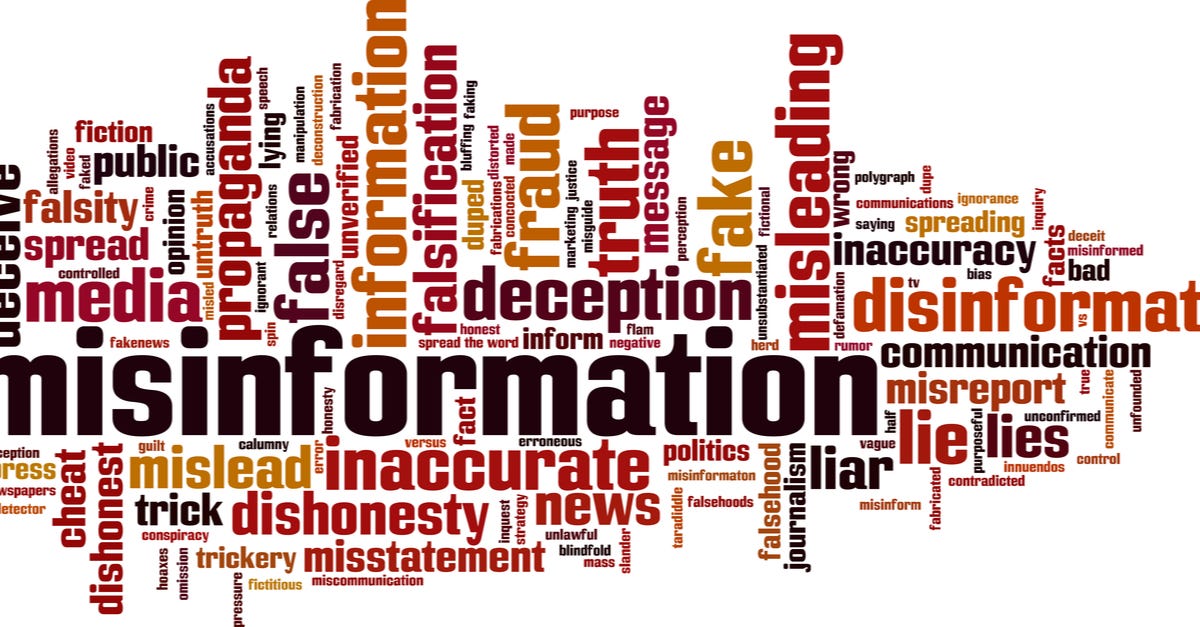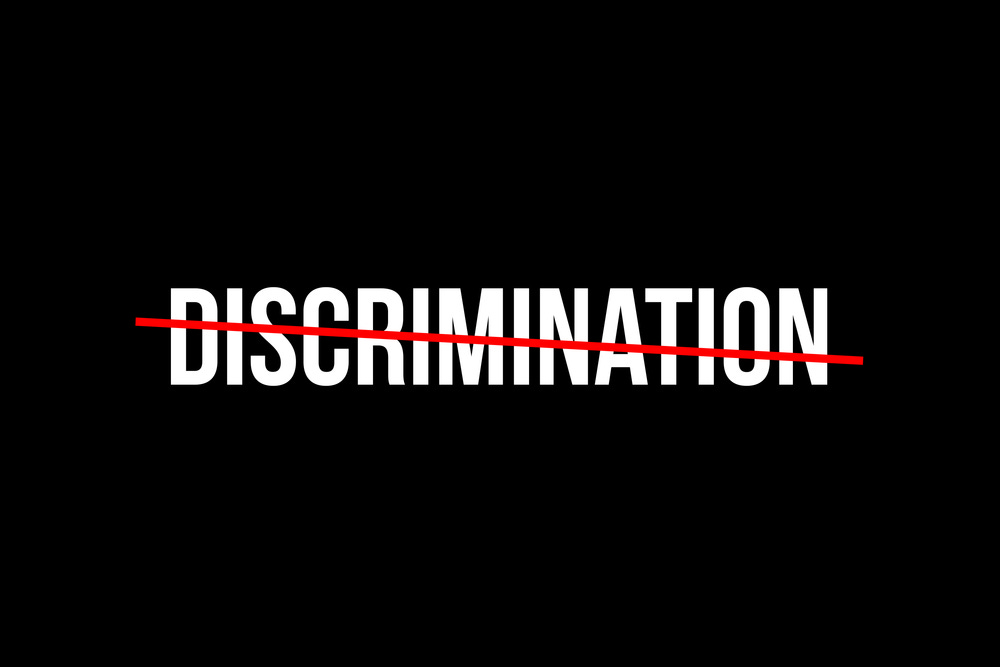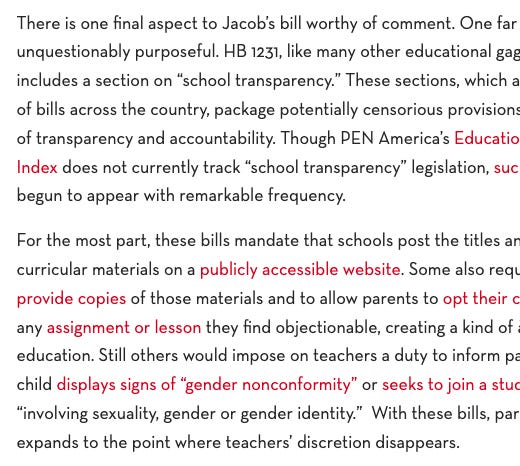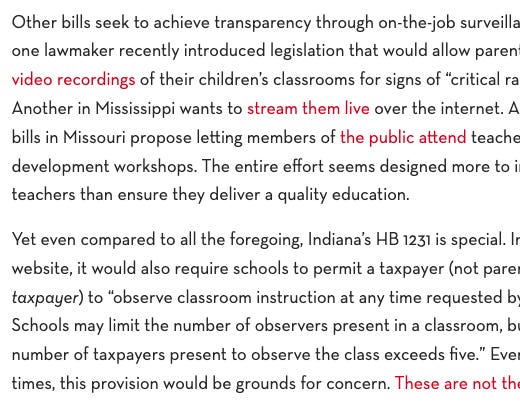E-Pluribus | January 26, 2022
Should spreading 'misinformation' be criminalized, the problem with anti-racism discrimination, and separating news from opinion.
A round up of the latest and best writing and musings on the rise of illiberalism in the public discourse:
Jeff Kosseff: Washington’s Election Misinformation Bill Demonstrates Dangers of Compromising First Amendment Values
The Misinformation Locomotive continues to barrel down the track and the efforts to derail it seem to be themselves going off the rails. Jeff Kosseff at Lawfare looks at Washington State’s proposed legislation to potentially jail candidates and elected officials whose words “stoke violence.” Given the potential for abuse and the traditional leeway given to political speech in particular, the legislation seems unlikely to survive, but even the attempt is concerning.
Exactly one year after the Jan. 6 violence at the Capitol, Washington Governor Jay Inslee announced his support for a bill that his office said “would outlaw attempts by candidates and elected officials to spread lies about free and fair elections when it has the likelihood to stoke violence.” That bill would make such lies a gross misdemeanor, subject to up to 364 days in jail.
Inslee’s motives are laudable. But his solution—jailing people for political speech—raises substantial First Amendment problems. The debate playing out in Washington state is a broader illustration of the fragility of the robust First Amendment protections that courts have provided to speech for the past century. Some officials and commentators across the political spectrum are increasingly willing to sacrifice core free speech protections to address the problems of the day. And this illiberal trend should concern everyone, regardless of partisan affiliation.
[…]
The bill would be ineffective because the Brandenburg standard is incredibly difficult to meet, and it is hard to conceive of many false election claims that would surpass this hurdle.
Although prosecutors would have trouble convicting people under this bill, it still raises substantial free speech concerns due to its chilling effect. The bill broadly defines “knowingly makes false statements or claims” as “any statements or claims that are publicly made by an elected official or candidate for which there is no proof or evidence,” sweeping in a wide swath of modern political discourse. Even if a politician would not ultimately be convicted, the possibility of prosecution would likely cause the politician to think twice before criticizing election administration. Why take the risk of defending against charges, perhaps from a prosecutor who holds different partisan affiliation?
To be sure, First Amendment protections are not absolute. Current law allows liability for defamation, false advertising, fraud, perjury and other speech. But courts have set high bars for this liability. And courts are particularly hesitant to regulate political speech, especially when the penalty is jail. As Justice Anthony Kennedy wrote in a 2012 opinion striking down a ruling that criminalized lies about military honors, “our constitutional tradition stands against the idea that we need Oceania’s Ministry of Truth.”
Read the whole thing.
Wenyuan Wu: Anti-Asian Discrimination at the Heart of the Progressive Education Agenda
The idea that racism is so deeply ingrained in US society that drastic measures are needed to excise it is becoming more pervasive, but Wenyuan Wu at Minding the Campus writes that such measures often blatantly discriminate against Asian Americans, and the situation is not improving.
Anti-racist discrimination is not a victimless offense. A glaring skeleton in the closet of American education is its intentional and long-established discrimination against Asian Americans, both in college admissions and in access to quality K-12 education.
In light of such endemic practices that should embarrass any classical liberal, a federal lawsuit filed by Coalition for TJ against Fairfax County Public Schools (FCPS) in northern Virginia has galvanized national attention. The grassroots organization, mainly consisting of Asian-American parents, argues that Thomas Jefferson High School for Science and Technology (TJ) discriminates against Asian-American students in admissions. Specifically, the parents challenge FCPS’s new policy change to ‘reform’ its merit-based admissions process by establishing a test-blind system that caps TJ’s enrollment from the district’s 23 middle schools—in other words, geographic quotas serving as a proxy for racial quotas. The case has generated extensive media coverage and public outrage, partly due to the FCPS school board’s unapologetic support for racial biases, thinly veiled under the guise of promoting diversity and equity at our nation’s top-performing public high school.
[…]
Like a parasite overtaking its host, the woke dogma of diversity, equity and inclusion has operated through unjustifiable penalties against an inherently diverse and dynamic racial minority group. ‘Give us more diversity, and just remember: we want fewer Asians because their statistically significant excellence in academics insults the progressive pursuit of mediocrity. Also, their non-Western faces don’t enhance diversity.’
Read it all.
Martin Gurri: What’s The Connection Between News—Fake and Real—And Opinion?
“Fake news” is nothing new as Mark Twain and others have observed, although in different terms, but Martin Gurri at Discourse Magazine takes a hard look at how effective false information in the media is at shaping opinion. Given human beings’ resistance to change, Gurri says, news — real or fake — tends to simply confirm the preconceived notions of the hearers rather than sending them off in a new direction.
Belief in the power of the word requires a parallel faith in the gullibility of the public. Fake news can only be dangerous if ordinary people can be made to believe in preposterous lies. That’s a risky posture for an analyst: It divides the world into the clever, which is mostly us, and the foolish, which is entirely them. More to the point, it’s almost certainly wrong.
The human mind is a hard object to budge. That is the conclusion Hugo Mercier arrives at in “Not Born Yesterday,” after reviewing the psychology of persuasion. If recipients of information “were excessively gullible,” Mercier writes, “they would be mercilessly abused … until they reached a point where they simply stopped paying any attention to what they were being told.” For good evolutionary reasons, the default isn’t blind faith but hunkering down. When deprived of the means to evaluate information, people “revert to a conservative core, rejecting anything they don’t already agree with, being much harder, not much easier, to influence.”
Fake news and impossible rumors are sometimes deployed after the fact to justify bad behavior, according to Mercier. Bigots who hate and envy Jews might loot their stores and abuse their persons because they wish to do so, then explain, “I heard they kill children in secret rituals.” Such people use rumors to “provide the ‘facts’ that sanction what they want to do anyway.” Cause and effect are inverted; crucially, no persuasion occurs—no changing of minds.
Read it all here.
Around Twitter
Excerpts from a Jeffrey Sachs thread on anti-CRT legislation currently in the pipeline, with commentary by David French and Nicholas Christakis. Click here to read it all.
Via Heterodox Academy, some thoughts from Thomas Chatterton Williams on the timelessness of the classics:
And finally, in the New York Times (!), “Confessions of a Liberal Heretic”:















